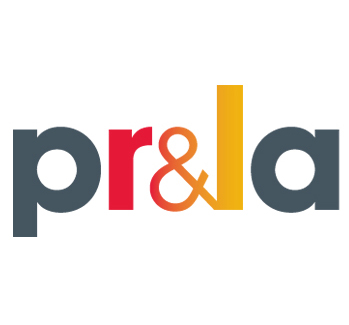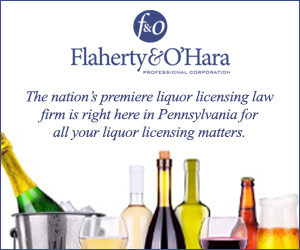State Items
Elections
On May 18, Pennsylvania voters passed the two constitutional amendments to limit the governor’s emergency powers. The first empowered the state legislature to extend or terminate an emergency declaration by resolution. The second addressed the governor’s emergency powers, including requiring legislative approval to continue beyond 21 days.
Less than one month later, the Pennsylvania legislature put an end to the governor’s pandemic disaster emergency declaration. On June 15, the Wolf Administration certified the results of the May primary election, bringing a formal end to the disaster emergency declaration. With the declaration’s end, expanded outdoor premise and cocktails to-go also ended.
Realizing that the end of the pandemic disaster declaration ended many important protections for individuals and businesses, the Senate passed HB 854 to extend those protections through September 30, 2021.
Unfortunately for the restaurant industry, this bill did not include expanded outdoor premise or cocktails to-go.
Cocktails to-go & expanded outdoor premises
Despite our best efforts and your extensive outreach, the Pa. Senate decided not to address PRLA’s liquor priorities of allowing outdoor seating to continue and cocktails to-go to be made permanent along with other important recovery initiatives contained in HB 1154.
HB 1154 passed the House with overwhelming bipartisan support; however, the bill was amended in the Senate Law & Justice Committee to include an amendment that would have permitted canned cocktails to-go—something Gov. Wolf stated he would veto. The Senate passed the bill along partisan lines, sending it back to the House for concurrence. The House stripped the poison pill amendment from the bill and, again, overwhelmingly, passed the measure. Unfortunately, the Senate opted to not move the bill before adjourning for summer recess, leaving the industry hanging until it reconvenes in September.
Sen. Scott Martin called on Senate leadership to immediately reconvene for session and concur on HB 1154, which would allow for the continuation of mixed drinks to-go and a streamlined process for outdoor seating. The bill also includes other important recovery initiatives for restaurants in Pennsylvania. The Senate is currently not scheduled to return to session until September 20, 2021.
Budget
The legislature did pass a $40.8 billion budget on time; however, it spent only about $1 billion of Pennsylvania’s allotted $7.3 billion in American Rescue Plan funds. The remaining $6+ billion in funds will be moved to the state’s Rainy Day Fund in anticipation of a potential recession.
Of the $1 billion spent in the budget was applied to schools, transportation, and nursing homes. The legislature is now in recess until the middle of September. Two other items of note in the budget:
- Statewide tourism promotion was “flat funded” at just over $4 million. This is accompanied by about another $4.5 million in tax revenue from closing the online travel company loophole.
- The budget does contain a repeal of the increase in the salary threshold that was slated to take effect in October of this year, which means that the increase to $40,500 and any future increases will not happen, and the state will stay aligned with the federal standard.
Coronavirus
Pennsylvania’s mask mandate for all unvaccinated people ended on June 28, though some entities will still require a mask and federal guidance may still require your unvaccinated employees to continue to wear masks.
A state appeals court refused to overturn an order that closed a western Pa. restaurant for disobeying Gov. Wolf’s COVID-19 restrictions requiring its workers and customers to wear face masks. The Commonwealth Court panel’s decision in the case of The Crack’d Egg of Pittsburgh marked the defeat of yet another legal challenge to the validity of directives Wolf issued amid the pandemic. The State Supreme Court repeatedly upheld the governor’s emergency authority to issue those edicts.
While case counts continue to increase because of the Delta variant, PRLA remains focused on urging vaccinations and not bringing back any previous mitigation orders that may have been in place.
Minimum Wage
PRLA was invited to attend a stakeholders’ briefing by the Wolf Administration on proposed changes to existing regulations relating to Pennsylvania’s Minimum Wage Act. The Administration is currently finalizing the proposed regulatory changes and will submit them to the Attorney General for review. After that, they will submit the proposal to the Independent Regulatory Review Commission (IRRC) where there will be an opportunity for public comment. PRLA will share the proposed changes as soon as they are released by the Administration.
Regulatory
In June, IRRC approved regulation that allows licensees to have their taps cleaned every 14 days instead of every 7. The regulation will now be forwarded to the Attorney General’s Office for approval and will be made official in the PA Bulletin following that approval. Stay tuned to PRLA’s daily update for when the effective date is announced.
Looking forward…
As the industry moves into recovery from the destructive pandemic, PRLA is revising our legislative priorities to look forward, such as:
- Addressing unfinished COVID recovery legislation—creating and expanding grants, liability protection, cocktails to-go and allowing outdoor seating to continue seamlessly.
- Recognizing that the workforce shortage is a much larger, longer-term problem and finding ways to help small businesses offer benefits they can’t usually afford will help them compete with large companies—inclusive of association health plan and retirement benefits.
- Advocating for a tourism package that not only provides much needed funds to tourism now—but addresses tourism funding in the future.
Federal Items
Restaurant Revitalization Fund
The program officially opened on May 3 with about $26 billion allocated to the program. Initially, the SBA announced it would be processing and funding priority group applications for the first 21 days. On June 11, the Small Business Administration (SBA) announced that due to a recent court case, it was forced to suspend payments to RRF grant recipients who qualified under the “priority” designation of the Restaurants Act. About 3,000 “priority” recipients had their grants rescinded.
The National Restaurant Association sent a letter urging the SBA to review all pandemic relief programs under its control to appropriate federal dollars to fulfill the prior commitment to these operators and launched an extensive Action Alert urging Congress to appropriate additional funding for the program.
As expected, the fund was quickly over-subscribed, falling about $50 billion short of the applications submitted. The portal officially closed on July 14.
Through June 30, the SBA approved 3,530 Restaurant Revitalization Fund grants to Pennsylvania businesses in a sum totaling more than $949 million. That’s slightly over one-third (35%) of the aid requested in the Keystone State, where 9,944 applications were submitted asking for almost $2.5 billion. The total amount in dollars ranks Pennsylvania seventh overall for what was approved.
Replenishment
The sponsors of the RESTAURANTS Act (Sens. Sinema/Wicker, Reps. Blumenauer/Fitzpatrick) introduced the Restaurant Revitalization Fund Replenishment Act. Their bill would provide $60 billion in new money for the RRF program—enough to process the existing applications in the SBA queue.
ENTRÉE Act
Republican Congressman and ranking member of the House Committee on Small Business, Blaine Luetkemeyer, introduced the ENTRÉE Act to add $60 billion accounted-for funds to the Restaurant Revitalization Fund. The proposal achieves the same goal as the Restaurant Revitalization Replenishment Act but reappropriates existing recovery funds to the RRF and eliminates priority groups.
PRLA has asked our members to reach out to their congressional representatives to urge their support of either bill.
No matter what path is taken, it is not expected that Replenishment of the Entrée Act will be considered before Congress returns to session in September.
PPP Forgiveness
Many operators that obtained a second PPP are now working towards forgiveness of those loans. Please pay careful attention to what is forgivable and what isn’t.
Employee Retention Tax Credit (ERTC)
Employers should continue to utilize the ERTC, which equates to up to $7,000/quarter for each retained employee. The credit was extended until the end of 2021. Refer to this explainer document from the National Restaurant Association for additional details.
Work Opportunity Tax Credit (WOTC)
Employers should also consider utilizing WOTC which allows a tax credit for bringing on employees that have been on unemployment for more than 27 weeks. The credit must be taken within 28 days of the employee’s hire, and the state has a State Workforce Agency that can help with applying the credit.
80/20 Rule
On June 21, the U.S. Department of Labor issued a proposed rule that seeks reinstate the Obama-era 80/20 interpretation of the Department’s dual jobs regulation to address the application of the FLSA’s tip credit to tipped employees who perform both tipped and non-tipped duties. Specifically, it proposes that if an employee performs work that directly supports tip-producing work for a substantial amount of time—that exceeds 20% of all of the hours worked during the employee’s workweek or exceeds 30 continuous minutes—“that worker is no longer performing labor that is part of the tipped occupation.” The proposal goes on to clarify that employers may not take a tip credit for work that is not part of the tipped occupation.
Local Items
Philadelphia
Early in the summer, Philadelphia City Council unanimously passed legislation that would regulate short-term rentals in the city.
Philadelphia’s ban on single-use plastic bags will go into effect Thursday, July 1, though full enforcement will not take place until April 1, 2022.
The Philadelphia Department of Health recently announced that they are now strongly recommending that people wear a mask indoors regardless of their vaccination status to help quell the spread of the COVID-19 Delta variant.
Philadelphia’s COVID Emergency Leave concluded at the same time the state Emergency Declaration concluded—Philadelphia’s long-standing paid sick leave remains in place and businesses can continue to tap into federal tax credits to provide additional leave until the end of September.
Philadelphia Council member Kenyatta Johnson’s bill no. 210421, which would increase wages for employees at the Philadelphia Airport, was amended in Council today and has been placed on next week’s final calendar. The changes to the bill mean the new wage increase for restaurants and concessions at the airport will not go into effect until January 2022. The bill also includes a $4.54/hour health supplement that employers must pay their employees. With the changes, that part of the legislation will not go into effect until July 2023.
Pittsburgh
Pittsburgh City Council has voted to extend COVID Emergency Paid leave for one additional year.
The Pittsburgh City Council passed a resolution in May declaring its intent to ban plastic bags within city limits.
Allegheny County
The Allegheny County Health Department approved legislation allowing for paid sick leave to be required by employers within the county who have 26 or more employees. It now goes to County Council for consideration. •













